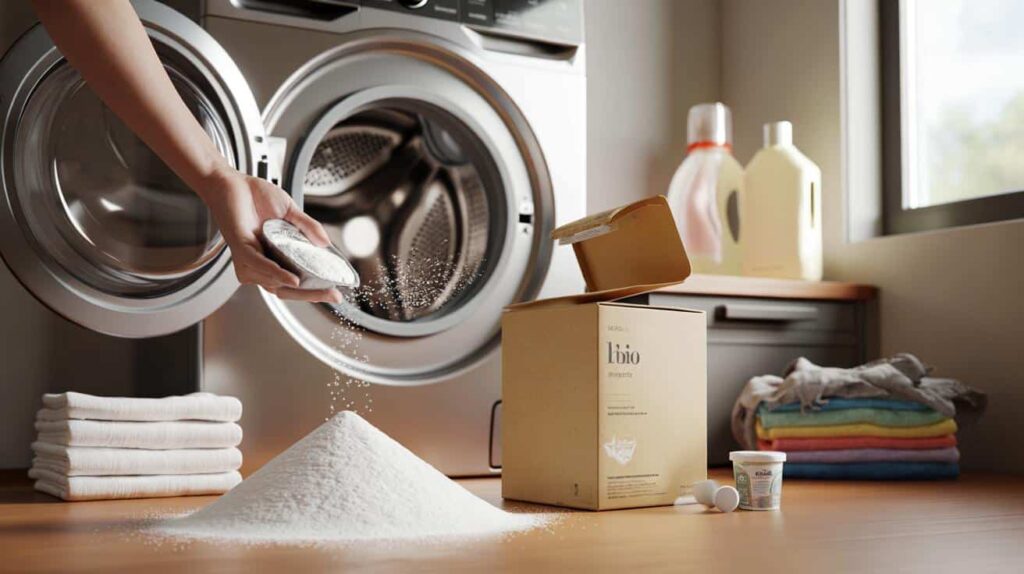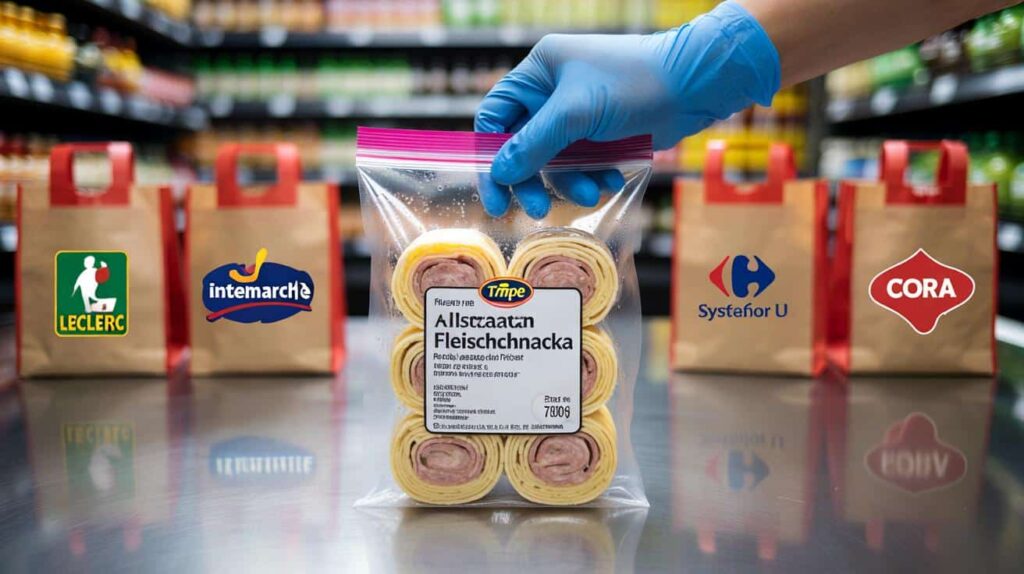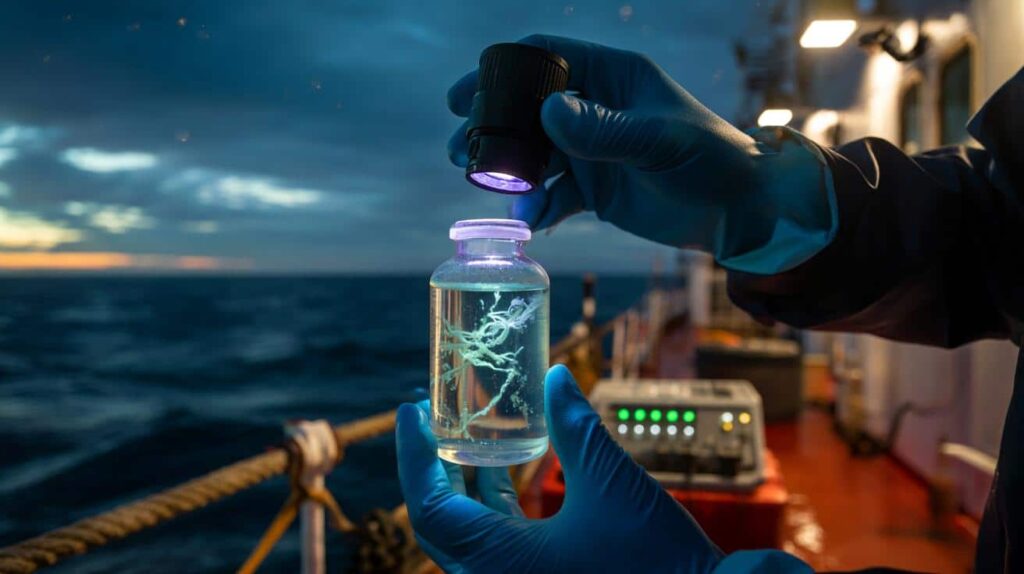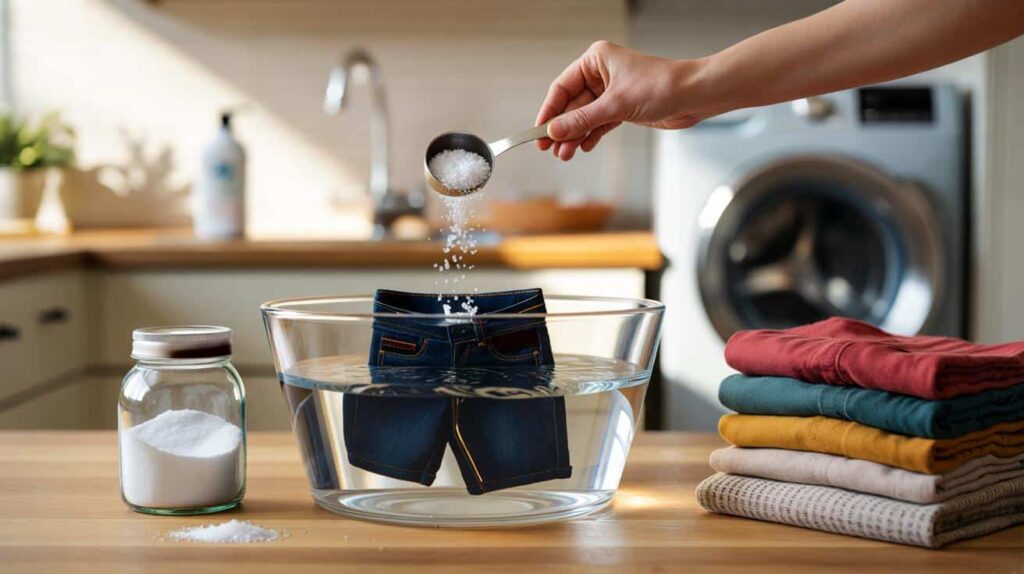Then you add the same well-known brand box to your cart out of habit. The twist is what an expert shared with me: the “best detergent” for your washing machine isn’t Ariel or Skip. It’s a formula that effectively keeps your clothes clean and your drum in good condition, quietly, without extravagant claims.
I’m in a basement laundry room that has a faint scent of damp cotton and warm metal. A washing machine thuds in the corner like a fatigued nightclub. A neighbor is scrubbing a grass stain with dish soap—then shrugging when it smears. We’ve all experienced that moment when the cycle ends and the T-shirt emerges looking… fine, but not truly clean. I came here to observe, take notes, and pose one straightforward question to an expert who is deeply knowledgeable about detergent chemistry. The answer caught me off guard. It may surprise you as well.
Meet the unexciting winner that quietly outperforms the big names
The expert’s choice isn’t Ariel or Skip. It’s a bio powder containing enzymes and oxygen bleach, the kind your grandmother would trust and your machine genuinely requires. Think of Persil Bio Powder, or a no-frills supermarket bio powder that lists “oxygen-based bleaching agents” on the packaging. Powders accomplish something that liquids and pods seldom do: they keep the drum and door seal cleaner over time. This is important for odor, for colors that don’t become dull, and for towels that feel like towels again.
One small test stuck with me. Two identical loads: school uniforms, tea towels, a light hoodie with a ketchup mark. One wash with a shiny liquid gel. One wash with a basic bio powder. Same 40°C, same cycle duration. The liquid made everything appear fresh, but the ketchup stain remained, and the drum emitted a… sweet-sour smell. The powder load emerged brighter, the stain faded to nearly nothing, and the drum had no scent at all. Not glamorous. Effective.
There’s science behind this. Enzymes in bio powders—protease, amylase, lipase—break down protein, starch, and fat at moderate temperatures. The oxygen bleach in powders (sodium percarbonate on the label) releases a mild peroxide at 40–60°C, lifting greyness and quietly disinfecting the machine’s interior. Liquids and pods often omit oxygen bleach because it doesn’t mix well in a water-rich liquid. So you get fragrance and surfactants, yes, but the machine remains grimy. That’s why the “unexciting” powder excels in the long run.
How to use it so your machine appreciates you
Use less than you think. Start with two-thirds of the scoop for soft water, three-quarters for medium, and the full dose for hard water. This small adjustment prevents suds from overwhelming the mechanical action your washer needs. Wash everyday clothes at 40°C. Use 60°C for towels, underwear, and sheets. Keep pods for travel or the occasional hurried load. Your machine prefers consistency over novelty.
The biggest errors? Overdosing, using cold-plus-ultra-short cycles for everything, and seeking fragrance to cover up stale rubber. Let’s be honest: nobody checks water hardness daily. Still, a tiny routine works wonders—one hot maintenance wash a month with bio powder, no laundry, and a quick wipe of the door seal. If skin is sensitive, switch to non-bio powder for underwear and baby clothes, and treat stains with an enzyme pre-wash spray just before the cycle. You achieve comfort without sacrificing cleaning power.
One statement from the expert sticks with me: “A good bio powder is dull on the shelf but exceptional in the drum.” That’s the guiding principle here. Large bottles and pods may look appealing, but the chemistry inside a simple box is designed for the realities of modern washers—low temperatures, sensitive sensors, and cramped pipes. Stop focusing on brand rivalries and start considering ingredients and habits.
“For most front-loaders, a bio powder with oxygen bleach is the best default. It cleans clothes and the machine simultaneously.” — a detergent formulator who consults for appliance brands
- Look for “bio” and “oxygen-based bleach” on the packaging.
- Powder for drum health; liquid for dark delicates; pods for convenience only.
- 40°C for daily loads; 60°C for towels and sick-day laundry.
- Measure by water hardness; too much detergent leaves residue and odors.
- One hot, empty maintenance wash per month with powder.
Not Ariel or Skip? Here’s the practical short list—and why it’s important
Skip the brand loyalty cycle. Opt for a bio powder that includes enzymes and oxygen bleach—Persil Bio Powder if you want a reliable choice, or a supermarket own-brand bio powder if you seek value without the plastic jug. **Liquids and pods have their place for dark fashion fabrics and quick cold washes, but they don’t keep the machine clean.** If you’ve dealt with sludge, mysterious odors, or greyed cottons, the solution isn’t more fragrance. It’s a simple box of powder, the correct dose, and one honest maintenance wash. The benefits extend beyond clean clothes: fewer re-washes, fewer micro-stink moments, and fewer “what’s that black speck on the seal?” messages to your group chat. Small adjustments, significant real-life benefits.
We began with a cluttered shelf. We conclude with a straightforward pattern. Choose the powder your machine would prefer if it could express itself, use a scoop that respects your water, and reserve the flashy bottles for exceptional cases. It’s not an exciting answer. It works. *And it’s strangely reassuring to know that the mundane can be remarkable.*
| Key Point | Detail | Reader Benefit |
|---|---|---|
| Bio powder outperforms big brands | Enzymes + oxygen bleach clean clothes and drum | Better stain removal and fewer odors over time |
| Measure by water hardness | Two-thirds scoop for soft, full scoop for hard | Prevents residue, saves money, improves rinsing |
| Simple routine prevails | 40°C daily, 60°C for towels, monthly hot maintenance wash | Cleaner machine, fresher laundry, longer appliance lifespan |
FAQ :
- So, which detergent should I actually buy today?Choose a bio powder that lists enzymes and “oxygen-based bleach” on the packaging—Persil Bio Powder or a good supermarket bio powder are reliable options.
- Is non-bio better for sensitive skin?Often yes; use non-bio powder for underwear and baby clothes, and treat tough stains with an enzyme pre-wash spray just before washing.
- Do pods clean as effectively as powder?Pods are convenient but may under-dose for heavy soil and don’t contain oxygen bleach, so machine hygiene can suffer.
- What’s the best temperature for everyday laundry?40°C balances enzyme performance and fabric care; use 60°C for towels, bed linens, and sick-day loads.
- How do I prevent the washer from smelling?Use bio powder, dose correctly, leave the door ajar to dry, and run one empty hot maintenance wash each month.








